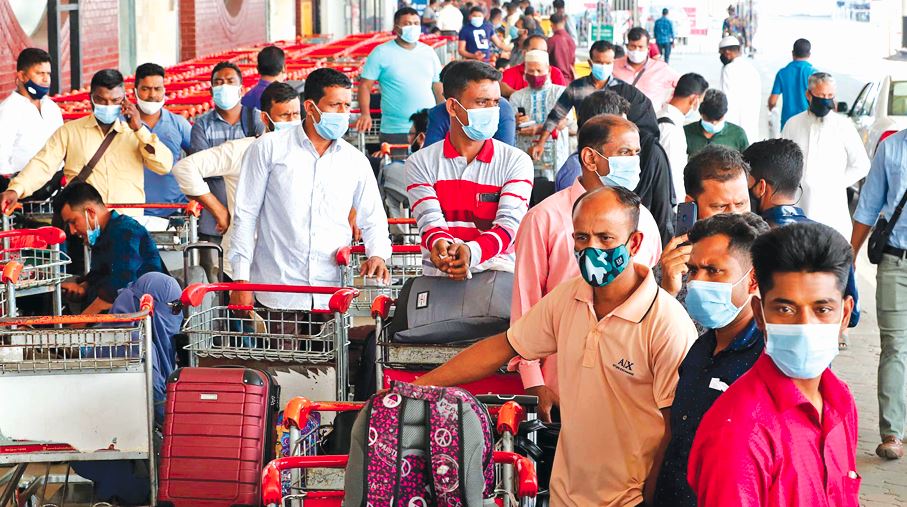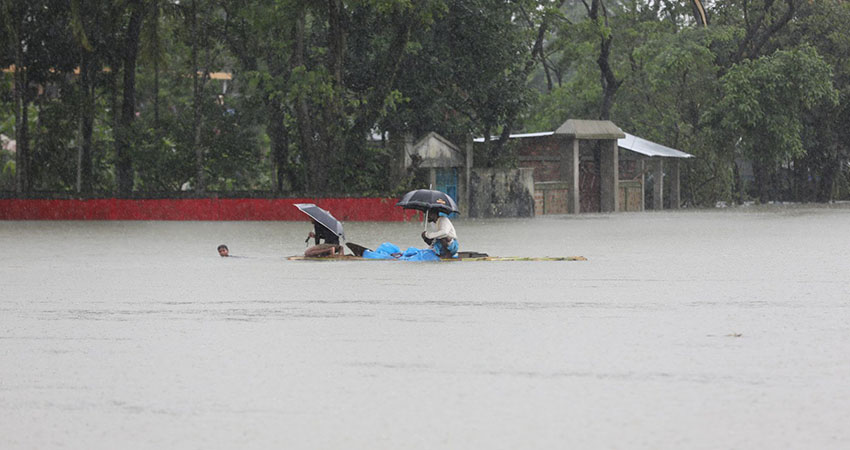Staff Correspondent
Huge numbers of Bangladeshi
migrants are passing hardship in unemployment condition after moving abroad for
work, particularly to the Middle East and
Such situation has led to
severe hardships for these individuals and their families back home, causing
not only personal but also national financial losses through the expenditure on
visas and related costs, rather than earning remittances.
Sources said around 150,000
Bangladeshi workers have become jobless in
After arriving in
Ashikur Rahman’s story is not
unique; thousands of Bangladeshis in
Comparable dire situations are
reported from several Middle Eastern countries, where Bangladeshi migrants are
enduring hardships due to unemployment.
Similarly, Kausar Hossain, a 32-year-old
from Magura, went to
After three years of struggle,
he returned home empty-handed, facing a financial crisis due to the debt
incurred for his migration.
The plight of these workers is
often attributed to deceptive recruitment practices.
Agents and labor attachés have
been accused of corruption, involving the sale of excess visas and promises of
non-existent jobs.
This has led to situations
where, for example, ten workers are sent for five available positions, leaving
half of them unemployed upon arrival.
Similar plight of migrant
workers persists in
Preferring anonymity, a
proprietor of a recruiting agency said that labour attachés’ and agents’
corruption are mostly responsible for the perilous conditions of migrants
abroad.
The proprietor said middlemen
who used to work as agents for the recruiting agencies are involved in
corruption over visa selling.
“The Labour Attaché also takes
money from those agents favouring such corruption,” the proprietor said.
The Bangladesh Association of
International Recruiting Agencies (BAIRA) and government officials acknowledge
these challenges.
Mohammed Fakhrul Islam, Joint
Secretary General of BAIRA, points to the role of mega companies and
contracting firms that overestimate their labour needs, resulting in a surplus
of workers who end up being jobless.
“Mega companies and contracting
companies which used to bring visas from the government showing demands of
numbers of workers are mostly responsible for labourers’ unemployment
conditions,” he told The Daily Citizen Times, adding that Labour Attachés of
those countries should scrutinise the visas before approval. Besides,
authorities concerned of those countries should have responsibility to their
end.
Fakhrul Islam also said, “For
example, they need 100 workers, but brought 200 visas in weak assumptions of
their needs of manpower. In most cases the extra workers become unemployed
after arriving in the country.”
The Bureau of Manpower,
Employment, and Training (BMET) has been addressing these issues, having
settled about 900 of the 2,500 complaints received last year and securing
around Tk five crore in compensation.
However, despite efforts to
penalize recruiting agencies and calls for greater scrutiny of visa approvals,
the problems persist, exacerbated by a reported shortage of manpower in
diplomatic missions abroad.
Mohammad Abdul Hai, Deputy
Secretary and Director (Employment) of Bureau of Manpower, Employment and
Training (BMET), the Ministry of Expatriates’ Welfare & Overseas Employment
told The Daily Citizen Times, “It is certain that a number of our migrants
become unemployed after arriving in different countries.”
“We are punishing the number of recruiting agencies
that send those workers,” he said.



















